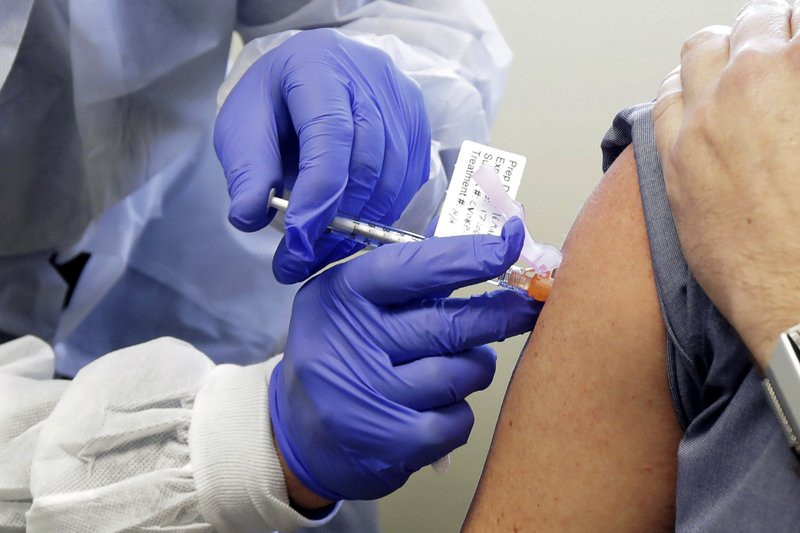With fear and uncertainty in every sector from economy to health, the only thing that could provide us assurance is vaccine. The only hope is for a vaccine to combat this pandemic and make our lives normal once again. With promising results of trials around the world, vaccine nationalism is on the rise. Currently, there are more than 135 vaccines in preclinical trials, 18 in phase I, 12 in phase II, four in phase III and one vaccine approved for limited use. Almost all of them are developed by wealthier countries or those with a huge economy.
According to the Merriam Webster dictionary, nationalism refers to loyalty and devotion to a nation, which tends to imply the placing of that nation above others. But nationalism has taken a dangerous turn, and we see more of ultranationalism these days “My nation first” approach is what leads to vaccine nationalism. It occurs when a country manages to secure doses of vaccine for its own citizens or residents before they are made available to other countries. This is achieved when the government of a particular country signs a prior agreement with a vaccine manufacturer. This will especially hurt developing and underdeveloped nations like ours in the fight against COVID-19 pandemic.
Global problems require global solutions. In the midst of a pandemic we need science not politics for global strategy to allocate, distribute and verify the delivery of COVID-19 vaccines but it’s politics that accentuates vaccine nationalism and leads to disruption of global supply chain.
A few worrying statements have been made amidst promising vaccine trials around the world recently.
The chief executive of the Serum Institute of India, the world’s largest producer of vaccine doses, said most of its vaccine, at least initially, would have to go to his countrymen before it goes abroad.
European nations, the Bill and Melinda Gates Foundation and Wellcome Trust committed over $8 billion to finance Access to COVID-19 Tools (ACT) dedicated to rapid deployment of new COVID-19-related health technologies. Yet the United States, Russia, and India have chosen not to participate in this initiative.
AstraZeneca reported that due to the UK’s $79 million investment, the first 30 million doses of the vaccine it is developing, with the University of Oxford would be allocated to the country. Then, on May 21, the United States pledged as much as $1.2 billion to the company in order to obtain at least 300 million doses, with the first to be delivered as early as October. The pledge to AstraZeneca is part of the Trump administration’s Operation Warp Speed for securing vaccines for Americans as early as possible.
The history of vaccine nationalism goes back to 2009 when H1N1 (swine flu) pandemic killed an estimated 284,000 people across the world. Some of the wealthiest nations like the USA secured a pre-purchase agreement with potential vaccine manufacturers. During those times, maximum doses that could be produced globally were 2 billion but the USA alone negotiated to buy 600,000 doses. It was only when the pandemic began to unwind and demand for a vaccine dropped that the developed countries offered to donate vaccine to poorer countries.
Nationalism cannot go hand in hand with global public health principles. There are no international regulatory bodies or law that govern the pre-purchase agreements like those mentioned above. With the rise of Donald Trump in the USA, Boris Johnson in the UK, Narendra Modi in India and many more elsewhere, the wave of ultranationalism has been spreading in an exponential manner. With such ultranationalist behavior it may be very difficult for us to halt this pandemic.
Even if any vaccine is developed for COVID-19, it will take more than a year to reach countries like Nepal, if politics dominates science. With vaccine nationalism along with lack of global strategy and evidence-based global supply chain, we may never contain this virus.
I was always taught nationalism in perspective of isolation and alienation from other nations. It was only when I read Yuval Noah Harari that my concept of nationalism changed and I got a different perspective. The concept of nationalism never accounts as an isolation or separation from one another. The concepts actually originated for bigger cooperation. For instance; the river Nile was lifeblood for ancient tribes that lived along the river. It irrigated their fields and supported their livelihood. It was an unpredictable ally. With too little rain—people starved to death; too much rain—and the river overflowed its banks and destroyed the entire village. No tribe could solve these problems by themselves, because each controlled a small section of the river and had small number of laborers. Only through the collective efforts of all the tribes they could build huge dams and hundreds of kilometers of canal, and could hope to restrain and harness the mighty river. Thus, these small tribes coalesced and formed a nation and developed a feeling of nationality using various national emblems, songs, culture, et cetera.
So, we must make our global governing bodies like the WHO, the Global Fund, the CEPI and GAVI stronger so that evidence-based approaches can be inculcated to halt the pandemic. We should use nationalism for the greater goods of others, rather than changing it into jingoist ultranationalism. We must remember that it’s the virus which is our foe. With global governance and evidence-based approach, we can stop transmission of virus and protect the vulnerable groups, no matter where they live. The pandemic can be halted only through timely, equitable and global access of vaccine. It’s global solidarity and global cooperation, which can help us eliminate this pandemic. It will be an arduous job but it can be completed if ultranationalist behaviors are kept at bay.

